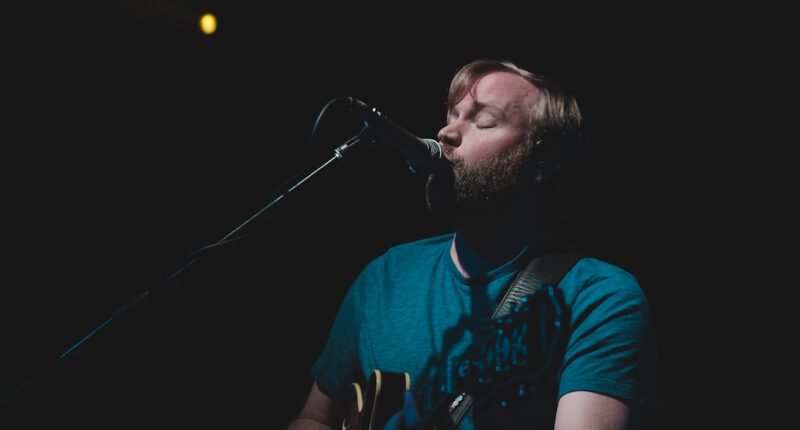Success in the modern music industry cannot be ensured by talent alone. Considering the proliferation of digital platforms & the growing number of musicians competing for public recognition, successful music promotion is more important than ever. By covering a variety of tactics & approaches that can make them stand out in a crowded market, this blog post seeks to give musicians a thorough introduction to music promotion.
Key Takeaways
- The music industry database is a valuable tool for understanding the industry and identifying potential contacts.
- A strong music promotion plan should include a clear target audience, unique selling points, and a variety of promotional tactics.
- Music marketing can be a powerful tool for building a fanbase and increasing visibility.
- Social media is a crucial platform for music promotion, but it’s important to use it strategically and authentically.
- Building relationships with industry professionals and crafting an effective press kit can help open doors and create opportunities for success.
Information about musicians, record labels, venues, & other significant figures in the music business are gathered in a music industry database. It offers insightful information and connections that are helpful in successfully promoting music. Artists can network with professionals in the field, find new opportunities, and stay up to date on trends and developments by having access to a Music Industry Database. AllMusic, MusicBrainz, & SoundScan are a few well-known databases used in the music business. For artists to successfully navigate the complicated terrain of the music industry, a well-thought-out plan for music promotion is imperative.
The objectives, target market, strategies, and tactics used to promote an artist’s music are all outlined in a music promotion plan. It supports musicians in maintaining consistency, organization, and focus in their marketing campaigns. Choosing the right promotional channels, establishing specific goals, determining the target audience, and drafting an implementation schedule are all important steps in the process of making a music promotion plan. Plans for effective music promotion often combine offline and online tactics, including press releases, live performances, partnerships, social media marketing, & live performances. The tactical measures used to market and sell music are referred to as music marketing. It includes a range of promotional strategies such as distribution, branding, public relations, and advertising.
In order to raise awareness, spark interest, and increase sales of an artist’s music, music marketing is essential. Storytelling, emotional appeal, and USPs are frequently used in effective music marketing campaigns to draw in the intended audience. Successful music marketing initiatives include Beyoncé’s unexpected album release, Taylor Swift’s active social media presence, and Drake’s well-timed partnerships. Promoting and listening to music has been transformed by social media. It enables real-time interaction & feedback, & gives artists direct access to their fans. Social media sites like YouTube, Facebook, Instagram, and Twitter have developed into effective tools for promoting music.
| Marketing Strategies | Description |
|---|---|
| Social Media Marketing | Using social media platforms to promote your music and engage with fans. |
| Email Marketing | Sending newsletters and updates to your email subscribers to keep them informed about your music. |
| Content Marketing | Creating valuable content such as blog posts, videos, and podcasts to attract and retain fans. |
| Live Performances | Performing live shows to connect with fans and gain new ones. |
| Collaborations | Working with other musicians, producers, and influencers to expand your reach and fanbase. |
| Brand Partnerships | Partnering with brands that align with your music and values to reach new audiences. |
Building a strong online presence, interacting with their fans, sharing interesting content, & utilizing the influence of influencers and user-generated content are all important strategies for musicians using social media to promote their music. Creative & engaging content, behind-the-scenes looks, exclusive releases, and fan competitions are frequently included in successful social media music promotion campaigns. Building a long-lasting & prosperous music career is the goal of music promotion, not just spreading the word about a particular song or album. Artists can expand their fan base, attract opportunities, & get recognition with the aid of efficient music promotion.
It entails forging a distinctive musical style, building a solid brand identity, & providing consistently excellent content. Artists such as Adele, Ed Sheeran, & Billie Eilish have attained great success by putting a high value on music promotion and cultivating a devoted following via their unique sound and captivating personas. For musicians who want to grow in their careers, establishing connections with people in the music business is essential. Professionals in the industry, including managers, agents, producers, and A&R representatives, can offer invaluable advice, contacts, and business opportunities.
Artists should concentrate on networking, going to industry events, contacting important contacts, and exhibiting their skill and professionalism in order to develop relationships with professionals in the music business. Talent manager Scooter Braun found Justin Bieber on YouTube, & the two went on to have successful music careers built on strong relationships with industry professionals. A press kit is a marketing bundle that gives important facts about an artist to bloggers, journalists, and other industry professionals.
A biography, press releases, excellent pictures, audio samples, and contact information are usually included. For artists to attract the attention of the media and get coverage, they need to have a strong press kit. Artists should concentrate on telling a gripping story, highlighting their USPs, and making their music & contact details easily accessible when designing an effective press kit. High-quality images, succinct and interesting text, and a polished layout are characteristics of successful press kits. Having a strong online presence is crucial for music promotion in the modern digital age.
It is recommended that artists utilize diverse online channels, including their website, social media accounts, streaming services, & digital music retailers, in order to connect and interact with their fan base. The creation of a visually appealing and user-friendly website, social media profile optimization, consistent music releases, and live streaming, Q&A sessions, and exclusive content engagement are all important ways for artists to make the most of their online presence. Data-driven marketing techniques, influencer partnerships, and targeted advertising are frequently used in online music promotion campaigns that are successful. To sum up, music promotion is essential to developing a successful music career. Artists can improve their chances of success in the cutthroat music industry by learning about the industry database, developing a solid plan for music promotion, applying music marketing techniques, utilizing social media, establishing connections with professionals in the field, putting together a press kit that is impactful, & making the most of their online presence.
Promoting their music successfully requires musicians to give it top priority and to devote time, energy, and resources to the task. In the music business, musicians can succeed by differentiating themselves, building relationships with fans, and using a consistent strategy.
Looking for effective music marketing strategies? Check out this informative article on MusicPromotion.tech that provides valuable insights and tips to help you promote your music successfully. Whether you’re an aspiring artist or an established musician, this article offers practical advice on how to navigate the ever-evolving landscape of the music industry. From social media promotion to building a strong online presence, this resource covers it all. Don’t miss out on this must-read guide! Click here to access the article and take your music marketing game to the next level.
FAQs
What is music marketing?
Music marketing is the process of promoting and selling music to a target audience. It involves creating a marketing plan, identifying the target audience, and using various marketing strategies to reach and engage with them.
What are some music marketing strategies?
Some music marketing strategies include social media marketing, email marketing, influencer marketing, content marketing, live events, and collaborations with other artists or brands.
What is a music marketing plan?
A music marketing plan is a document that outlines the marketing goals, target audience, and strategies for promoting and selling music. It includes a timeline, budget, and metrics for measuring the success of the marketing efforts.
What is social media marketing for music?
Social media marketing for music involves using social media platforms like Facebook, Instagram, Twitter, and TikTok to promote and sell music. It includes creating engaging content, building a following, and using paid advertising to reach a wider audience.
What is email marketing for music?
Email marketing for music involves using email to promote and sell music to a target audience. It includes building an email list, creating engaging email content, and using email automation to send targeted messages to subscribers.
What is influencer marketing for music?
Influencer marketing for music involves partnering with social media influencers or bloggers to promote and sell music to their followers. It includes identifying relevant influencers, negotiating partnerships, and creating engaging content for the influencer to share with their audience.
What is content marketing for music?
Content marketing for music involves creating and sharing valuable content like blog posts, videos, and podcasts to attract and engage a target audience. It includes identifying relevant topics, creating high-quality content, and promoting the content through social media and other channels.
What are live events for music marketing?
Live events for music marketing include concerts, festivals, and other live performances that promote and sell music. They provide an opportunity to connect with fans, build a following, and sell merchandise and music products.





